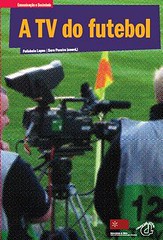Terminou hoje em Viena a "BlogTalk - A European Conference On Weblogs", que contou com a presença e intervenção de alguns dos nomes mais destacados do fenómeno weblog. A título de curiosidade, um trecho da comunicação de Gilbert Cattoire, que mostra, além do mais, a diversidade de caminhos que conduziu ao fenómeno em debate na conferência: "Spring 1995, Sarajevo: a peculiar accident in journalism occurred. Backed by 26 international newspapers and the Unesco, a team of 3 journalists and a telecom engineer, equiped with laptops and portable satellite phones (45 Kgs back then!), was sent to the then besieged city to build a satellite IP link and start a forum involving representants of the city and "the rest of the world". The operation was called Sarajevo Alive - Sarajevo Online. It was meant as a gesture of solidarity with the local daily Oslobodjenje. The team’s official assignement was to interview a few selected personalities; political debates were to be avoided. Something unexpected happened: the team in Sarajevo, more often than not blocked in public places while waiting for artillery alerts to end, took the decision to let any inhabitant express themselves on whatever topic they wanted – what is more, all postings were published unedited and uncensored on the operation's website. The resulting content was a breakthrough in war journalism: a besieged city's online diary, the pulse of of collective madness induced by war, updated daily, to which people all over the world responded spontaneously, answering the numerous messages in a bottle ( contacting relatives abroad, engaging in dialogues, sending unsollicited gifts of all kinds..). The website was updated twice daily via email. The feed was also available via a mailing list. Emotional response was overwhelming. Internet as a medium was beyond doubt the “hottest” of all. The episode demonstrates something that many journalists still have to discover: enabled by emerging digital communications, the audience fits quite naturally as an integral part of the information process, influencing the course of events as they happen. Journalism is evolving away from its mandatory lecture mode to include conversations and actions. Call it the experience of “direct reality.”
Quem somos
» Manuel Pinto» Helena Sousa
» Luis Antonio Santos
» Joaquim Fidalgo
» Felisbela Lopes
» Madalena Oliveira
» Sara Moutinho
» Daniela Bertocchi
» Sergio Denicoli
Últimos posts
» A Associated Press Management Editors (APME) lanço...» Os jornalistas franceses envolvidos na cobertura d...
» Ainda a propósito do próximo "Falar Televisão", de...
» O investigador do campo da comunicação Luis Ramiro...
» Um resultado raro, hoje em dia, aquele que foi con...
» Sobre o fenómeno e o filme Matrix Reloaded, de And...
» ...E por referir 'Le Monde', a edição de hoje traz...
» Quer numa intervenção, há dias, em Coimbra, quer o...
» O Fórum nº 13 do "Falar Televisão", organizado por...
» "Sex loses its appeal" ...on TV ! É essa a conclus...
Ligações
-
» Aula de Jornalismo
» Atrium-Media e Cidadania
» Jornalismo Digital
» Ponto Media
» ContraFactos e Argumentos
» JornalismoPortoNet
» Irreal TV
» Indústrias Culturais
» Blogouve-se
» Net FM
» As Imagens e Nós
» Retórica e Persuasão
» Fotojornalismos
» Charme da Bloguesia
» Mas Certamente que Sim
» Sopa de Pedra
» Educomunicação
» Travessias
» A Rádio em Portugal
» Webcom
» A nossa Rádio
» Rádio e Jornalismo
» Engrenagem
» Nós Media
» Observatório da Imprensa
» Blog do Provedor
» Intermezzo
» Jornalismo & Internet
» Midiablog
» Código Aberto
» Ponto de Análises
» Tiscar.com
» First Draft
» e-Periodistas
» Weblog Blog
» Public Journalism Net
» Media Network
» eCuaderno>
» Periodistas 21
» PressThink
» MétaMédias
» Deuze Blog
» Blog Clipping
» MediaTIC
» Le blog des medias
» Le blog TV news
» The OmbudsGod
» E-Media Tidbits
» Romenesko
» Dan Gillmor
» Editors Weblog
» Is Journalism dead?
» JP Cloutier
» Des Gadgets aux Réseaux
» Periodismo Global
» Comunicacion Politica
» Comunisfera
» Loïc le Meur
» D. Schneidermann
Arquivos
» abril 2002» maio 2002
» junho 2002
» julho 2002
» agosto 2002
» setembro 2002
» outubro 2002
» novembro 2002
» dezembro 2002
» janeiro 2003
» fevereiro 2003
» março 2003
» abril 2003
» maio 2003
» junho 2003
» julho 2003
» agosto 2003
» setembro 2003
» outubro 2003
» novembro 2003
» dezembro 2003
» janeiro 2004
» fevereiro 2004
» março 2004
» abril 2004
» maio 2004
» junho 2004
» julho 2004
» agosto 2004
» setembro 2004
» outubro 2004
» novembro 2004
» dezembro 2004
» janeiro 2005
» fevereiro 2005
» março 2005
» abril 2005
» maio 2005
» junho 2005
» julho 2005
» agosto 2005
» setembro 2005
» outubro 2005
» novembro 2005
» dezembro 2005
» janeiro 2006
» fevereiro 2006
» março 2006
» abril 2006
» maio 2006
» junho 2006
» julho 2006
» agosto 2006
» setembro 2006
» outubro 2006
» novembro 2006
» dezembro 2006
» janeiro 2007
Livros


» Felisbela Lopes e Sara pereira (orgs) A TV do Futebol; Porto: Campo das Letras
» Televisão e cidadania. Contributos para o debate sobre o serviço público. Manuel Pinto (coord.), Helena Sousa, Joaquim Fidalgo, Helena Gonçalves, Felisbela Lopes, Helena Pires, Luis António Santos. 2ª edição, aumentada, Maio de 2005. Colecção Comunicação e Sociedade. Campo das Letras Editores.
» Weblogs - Diário de Bordo. António Granado, Elisabete Barbosa. Porto Editora. Colecção: Comunicação. Última Edição: Fevereiro de 2004.
» Em nome do leitor. As colunas do provedor do "Público". Joaquim Fidalgo. Coimbra: Ed. Minerva. 2004
» Outras publicações do CECS
Eventos
» Conferência: A Nova Entidade Reguladora no quadro das políticas de Comunicação em Portugal (2006)» I Congresso Internacional sobre Comunicação e Lusofonia (2005)
» Jornadas ?Dez Anos de Jornalismo Digital em Portugal: Estado da Arte e Cenários Futuros? (2005)
» Todos os eventos
0 resposta(s) para “”
Responder